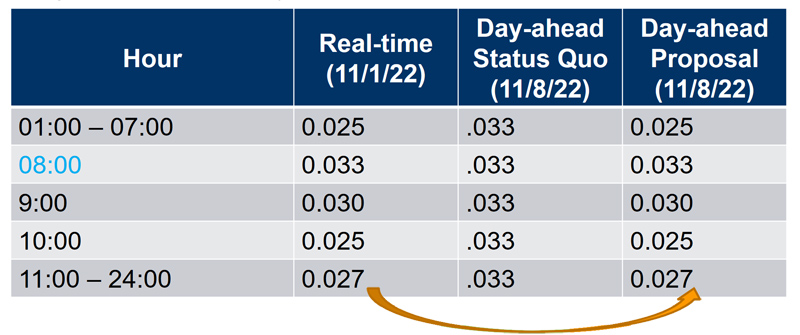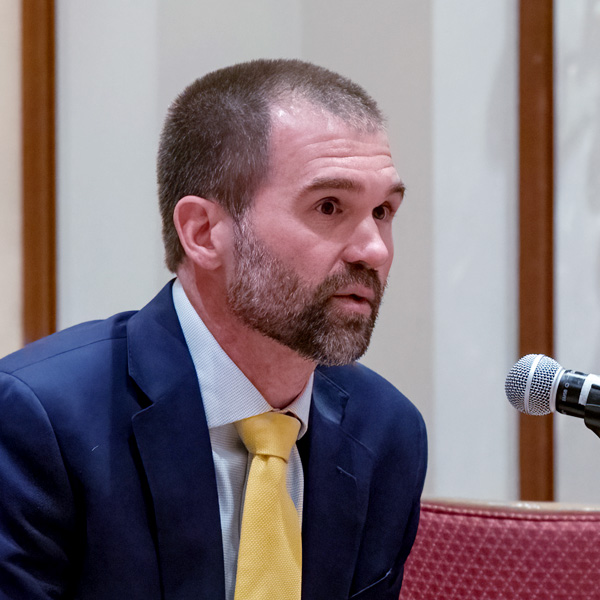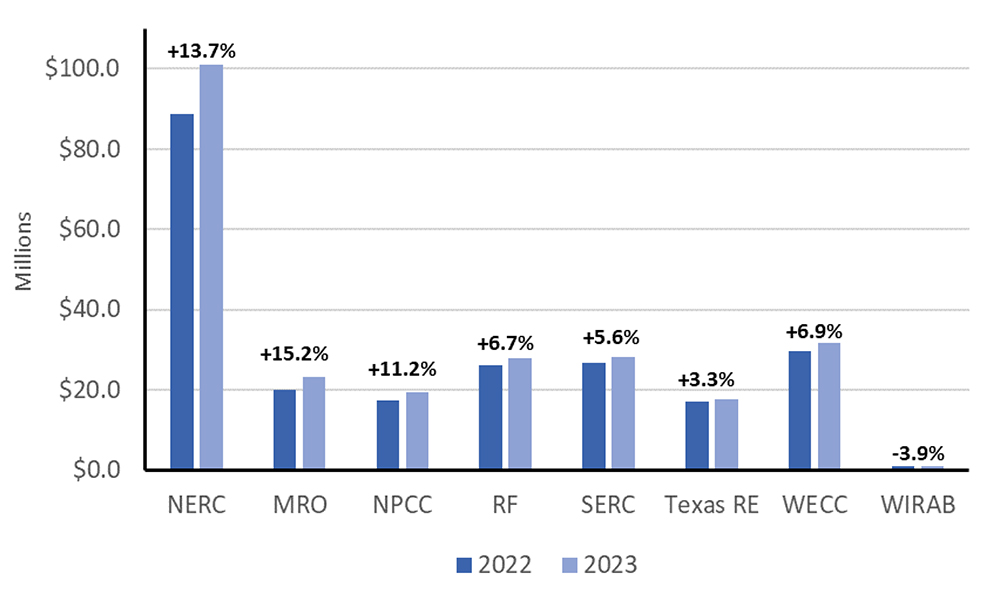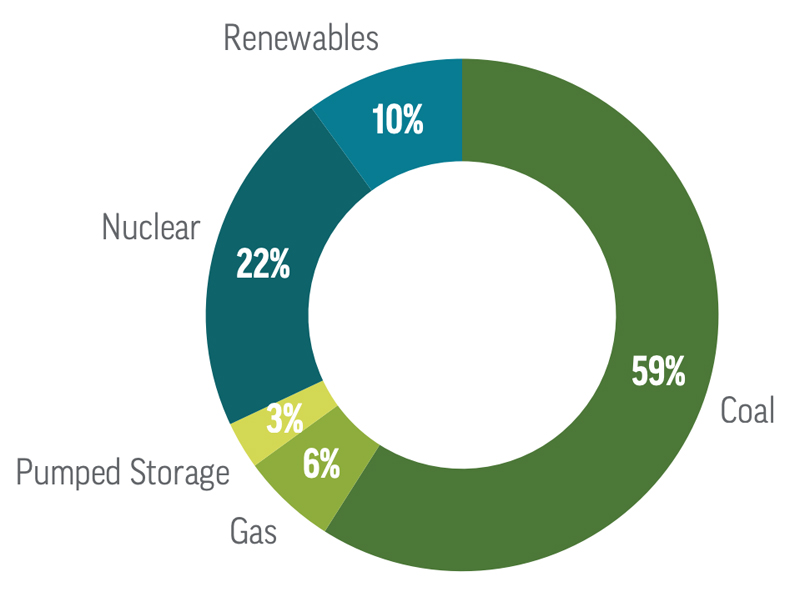PJM Presents Changes to CIR for ELCC Resources Proposal
VALLEY FORGE, Pa. — The PJM Planning Committee continued fine-tuning the five remaining packages addressing the level of capacity interconnection rights (CIRs) assigned to effective load-carrying capability (ELCC) resources on Nov. 1.
PJM’s Jonathan Kern presented changes to the RTO’s Package I to expand eligibility for transitionary headroom studies to include all resources, rather than solely ELCC generators. The studies will investigate permitting facilities to receive a higher level of temporary/annual CIRs and include energy up to this higher level when accrediting the amount of capacity they can offer for the Base Residual Auction. The increased CIRs will be based on existing headroom in the transmission system at the time the studies are conducted. Under the proposal, they would be able to do so until all transitionary interconnection study queues have been completed, in addition to the first queue under the new system. (See Stakeholders Challenge PJM in Capacity Accreditation Talks.)
A study of transmission headroom would be conducted each year before the BRA to determine how much is available and how to allocate it. Stakeholders questioned if alternatives have been considered for how to distribute that headroom among generators if requests for CIRs exceed the headroom available, such as prioritizing those units that would provide the most value to load.
Kern said the PJM proposal would prorate the headroom based on factors such as a facility’s power flow. If a study finds a generator is close to an electrical overload, it will likely be scaled down more than other units in that area. Kern indicated PJM was considering a final approach to this type of adjustment.
Expanding the use of headroom to all resources was a compromise with generation owners who felt limiting the studies to just ELCC resources was discriminatory. Tom Hoatson of LS Power said expanding the headroom studies met one of his company’s concerns with the PJM package. But he said the overriding issue is ensuring that the solution chosen is effective for next year’s June auction. He said multiple auctions have been held without the issue being resolved.
“We’re getting close to having a resolution; we’re getting close to putting this in place,” he said.
Economist Roy Shanker said it’s important that any issues that come up over the coming months don’t create delays that could prevent the new rules from being ready for the auction.
“It’s already been three auctions where what we consider an incorrect accreditation has taken place,” he said.
Ken Foladare of Tangibl said it’s likely many stakeholders will remain interested in PJM’s Package D, which he pushed to remain under consideration until the PC takes an endorsement vote. Three additional packages also remain: Package E from LS Power, Package F from Eolian and Package G from E-Cubed Policy Associates. (See “Poll Opened to Gather Support for Packages on CIR for ELCC Resources,” PJM PC/TEAC Briefs: Oct. 4, 2022.)
$50M+ in Projects Reviewed by TEAC
PJM reviewed several baseline reliability projects totaling more than $40 million as part of its reliability analysis update:
- Purchasing a spare VAR 345-kV reactor for Penelec’s 345-kV Mainesburg substation at a $6.44 million price tag.
- Installing two new 500-kV breakers on the existing open SVC string, which would be relocated into a new bay location at the 500-kV Black Oak substation near Rawlings, Md. The APS proposal also calls for installing a 500-kV breaker on a 500/138-kV transformer and upgrading relaying in the substation. The work is expected to cost $17.37 million with a June 1, 2027, in-service date.
- Baltimore Gas and Electric and PECO Energy recommended replacing and upgrading equipment along the companies’ 500-kV Peach Bottom-Conastone circuit, which is overloaded for multiple contingencies. The recommended solution for BGE’s side of the work includes upgrading two breaker bushings on a Conastone substation, while the PECO work would involve replacing 4 meters and bus work inside the Peach Bottom substation. The total cost of the work is expected to fall at $5.8 million with an in-service date of Dec. 1, 2027.
- PPL has identified that a stuck breaker contingency would result in the 500/230-kV Lackawanna transformer No. 3 being overloaded. The solution recommended is to re-terminate transformers Nos. 3 and 4 on the 230-kV side to remove them from the buses and into dedicated bay positions. The work is expected to cost $10.7 million with a Jan. 30, 2026, in-service date.
Dominion (NYSE:D) also reviewed its own supplemental projects, amounting to nearly $10 million.
Five 230-kV breakers and six disconnect switches at the company’s Clover substation are at the end of their lives and experiencing increased maintenance issues and difficulty sourcing replacement parts. The work, which is in the engineering phase, is expected to cost $2.75 million with a projected in-service date of June 1, 2023.
Dominion has identified a need to replace $2.36 million in 230-kV equipment at the North Anna substation in Virginia. The work is currently in the engineering phase and is projected to be in-service on Aug. 30, 2023.
The company is seeking to replace its Davis TX#2 168-MVA, 230/69/13.2-kV transformer bank because of its 32-year age, degradation of components and the basic insulation level being below standard. The project, currently in its engineering phase, is estimated to cost $4.5 million and be completed by June 30, 2023.
Dominion has also submitted three new requests for substations in Loudoun County, each with a total load in excess of 100 MW. The company has also identified overloads on a 230-kV line on the Brambleton-Evergreen Mills for the loss of the Brambleton-Poland Road line. It is in need of a temporary solution to avoid the overload and provide flexibility for future construction outages.




